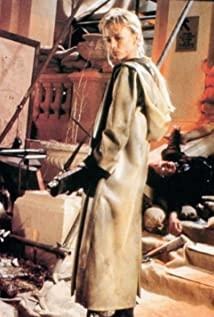When I was in junior high school, I came across this brisk and witty translation film for the first time on TV. This magical room described by Foster seems to have opened a window with a view in my consciousness. I naively and romantically believe that the beginning of this beautiful story is from a room with a view. If the traveler maintains the belief of seeking beautiful scenery, and if he is lucky, he will meet the favorite talented person and beautiful woman, and the story of happiness will naturally happen.
After many years, I came to the European continent, which is deeply nourished by Italian culture. Through the window, I saw with my own eyes a landscape different from the East. Today, when I watch the film again, I am still captivated by this gripping love story. Of course, it’s not just the places I liked before that prompted me to write down my thoughts, such as Lucy’s emotional changes and final choices, George’s sincere and passionate expression of love, and Cousin Charlotte’s rigid intimacy. Apart from the relationship between the characters and the shaping of their characters, I suddenly felt that Foster arranged for the story to take place in Florence on purpose. The details of the book George read by Reverend Pebble, and the cities Lucy chose to travel to escape the pressure of breaking her marriage contract, all have infinite implications.
Newcomers Lucy and her cousin Charlotte are the images of the British middle class in the Victorian era, and of course this is the era Foster lived in. Under the surface of red tape is the restraint and repression of women throughout the Victorian era. Whether it's behavior and clothing, way of thinking or speech, in the early days of the film Lucy and Charlotte, we see more of a habitual pandering and obedience. However, the key to the film not to feel depressing is that these inhuman traditions are always challenged one after another, and then fall into an embarrassing situation. When Lucy, unfortunately, fainted from the shock of seeing the bloody Italians fighting, I did laugh at the stoic Miss England. Of course, I also saw Foster's ulterior motive when he wrote it, when Charlotte couldn't wait to find out about the plot of the novel. As the women writers say, Italy is a place of change. Florence, then, should be the best place to start these changes. Not Paris, not Rome, not Madrid, nor Prague. Unbiased, it is precisely the birthplace of the Renaissance that has nurtured and attracted countless artists, craftsmen, poets and scholars. Here art, literature, and humanistic thought are fully revived, and the religious shackles of the Middle Ages are gradually loosened. Foster hopes to use this renaissance city to awaken the protagonist's nature to pursue freedom and independence and get rid of traditional moral constraints. Using Florence as an inspiration and inspiration for human nature, of course, could not be more appropriate. When some cities are not only synonymous with a certain area in the geographical sense, but endowed with a yearning for freedom, revolution, and change, the city is no longer a name. Those who slept in the new century will be awakened in Florence.
In fact, Foster's portrayal of George Emerson is also very laborious. The books George was reading were perhaps Foster's tastes. Byron, Schopenhauer, Nietzsche and a series of names may explain George's fiery passion, solitary contemplation, and the question marks he draws to himself from time to time like a philosopher. George's father, Emerson Sr., was a lovable character because he loved nature and was outspoken. This is a Briton who is different from other Britons who are suffocated by hypocrisy, dogma, and cowardice. He makes human relationships simple and direct, yet caring and understanding. He loves nature, is slovenly, and dresses simply. This is his spiritual pursuit, a subjective choice rather than poverty. Therefore, Foster asked the cheerful old man to jokingly write Thoreau's sentence in "Walden" on the wardrobe: "Mistrust all enterprises that require new clothes". Foster seems to be quite critical of the boom of the Industrial Revolution and the workings of capitalism. From the shaping of these characters, we can see Foster's own call for the liberation of human nature and his desire for social change.
At the end of the film, the lovers get married. The continuous love is scattered in the blue sky above the city of Florence, simple and complete. In a city full of expectations, Foster chooses a romantic but not tragic ending. For readers or viewers, this is a kind of giving of care and hope. At least when they come to Florence, whether the room has a view or not, they will look forward to the journey.
View more about A Room with a View reviews











